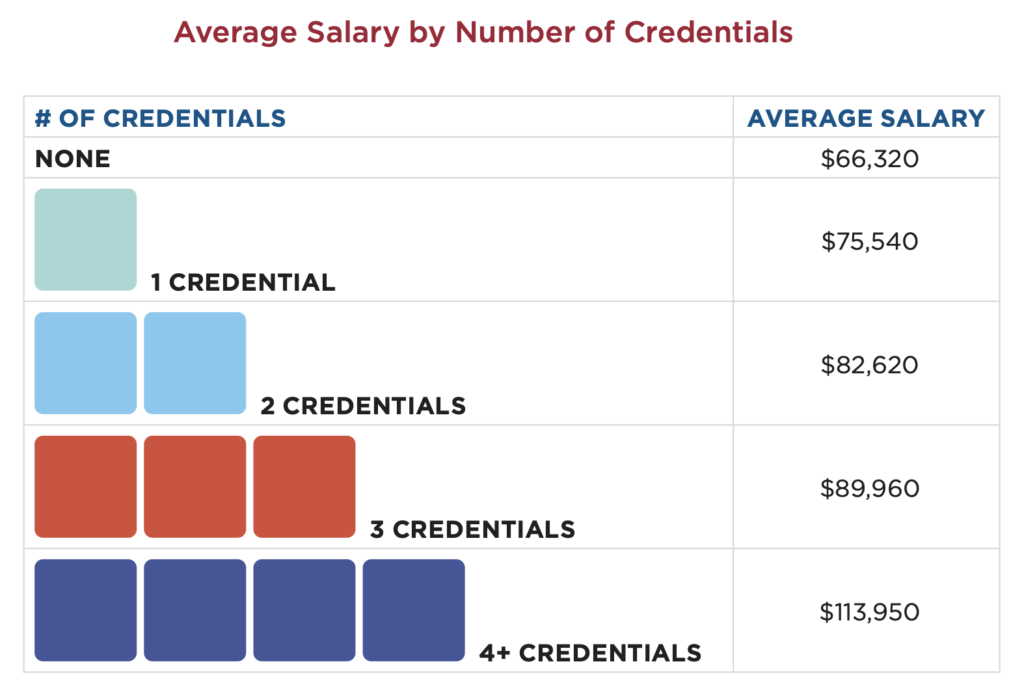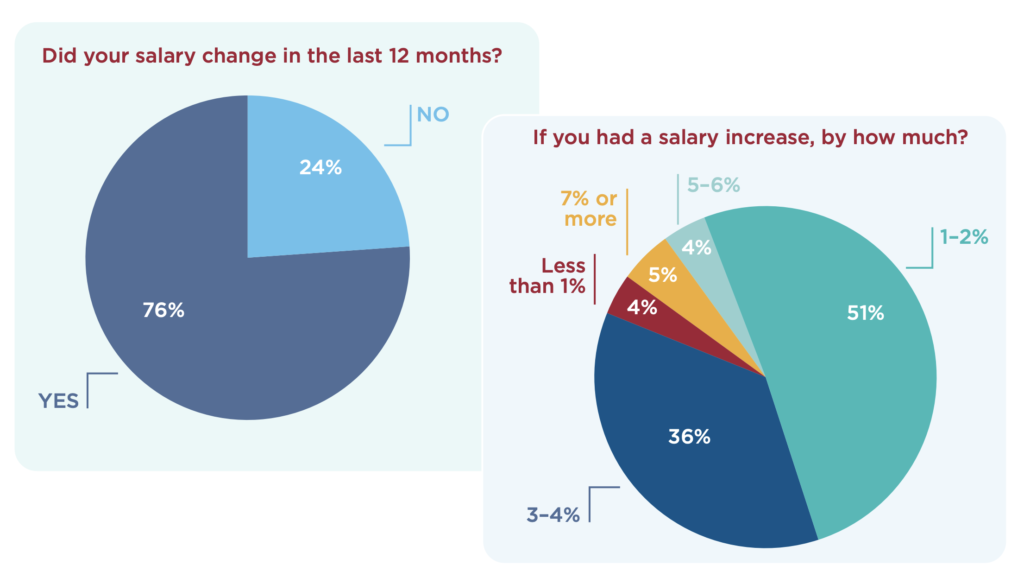Exciting news! AHIMA released its latest salary survey, where the association polled three thousand health information professionals from across the country about their salaries. They represented all areas of the health information field, including health information management (HIM), health IT, and analytics. Let’s review four interesting takeaways for those who want to take their health information careers to the next level.
Healthcare IT Salaries Were the Highest
Healthcare IT and infrastructure professionals had the highest self-reported salaries, with an average of $98,180. This group had job titles such as:
- Implementation support specialist
- Data quality manager
- System analyst
- Data architect
- Chief technology officer
See how other “job families” ranked in terms of average salary below.
- Compliance / risk assessment: $89,230
- Education / communication: $79,120
- Operations / medical record administration: $81,950
- Revenue cycle management / coding and billing: $66,370
For more on healthcare IT salaries, see our “Health Information Technology Careers Outlook, Job Titles, and Salaries” page.
Get Program Guide
Learn more about our 100% online degree and certificate programs.
The Average RHIA Salary Was $91,450
In the HIM field, credentials such as the RHIA, RHIT, CDIP, and CHPS matter a lot in terms of salary potential. In fact, the more credentials you have, the higher your salary is likely to be, according to the new salary survey.

Graduates of CAHIIM-accredited programs like Universities of Wisconsin HIMT are eligible to take the Registered Health Information Administrator (RHIA) certification exam and often do so when they graduate. As for RHIA salary, the average entry-level pay was $57,930. The average salary for RHIA-certified professionals at all levels was $91,450.
RELATED: “RHIA Certification: What Is It? Should You Get Certified?”
Something else to note! The difference between RHIA and RHIT salaries is more than $20,000 on average, most likely due to the upward mobility the RHIA credential affords those who earn it.
76% Said Their Health Information Salary Increased in the Past Year
According to the AHIMA survey, roughly three quarters of respondents said their salaries increased in the last twelve months. Most people said their wages went up 1 to 2 percent, while about 5 percent received a salary bump of 7 percent or more.

This fits with the employment trends and predictions we’ve been seeing for years. There is a huge need for HIM, healthcare IT, and health informatics professionals—so, as the importance of these positions increases, so do the annual salaries.
Data Analytics and Health Informatics Salaries Were Included
AHIMA’s salary survey once again featured data analytics and health informatics salary information, the second time the group was included after first premiering in the survey in 2016. This job family included titles such as:
- Data integrity analyst
- Clinical informatics coordinator
- Research and development scientist
- Director of clinical informatics
The average data analytics and health informatics salary was $83,490.
The need for and interest in healthcare data analytics has surged. (Just take a look at the Google Trends interest for the phrase “healthcare data analyst.”) That’s because big data has become one of the most valuable assets healthcare organizations own.
Informatics and data analytics roles have become increasingly important as organizations look for ways to capitalize on big data and its various applications, including how it can be used to drive healthcare quality improvement.
RELATED: “What Is a Healthcare Data Analyst? How Do You Become One?”
Earn an HIMT Bachelor’s Degree from the Universities of Wisconsin
Interested in moving your HIM, healthcare IT, or health informatics career forward? The online CAHIIM-accredited UW Bachelor of Science in Health Information Management and Technology could be your next step.
Start exploring the degree program now.
Have questions? Contact an enrollment adviser at 608-262-2011 or learn@uwex.wisconsin.edu. Enrollment advisers are available Monday through Friday from 8:30 a.m. to 5:00 p.m. CST, or by appointment.









